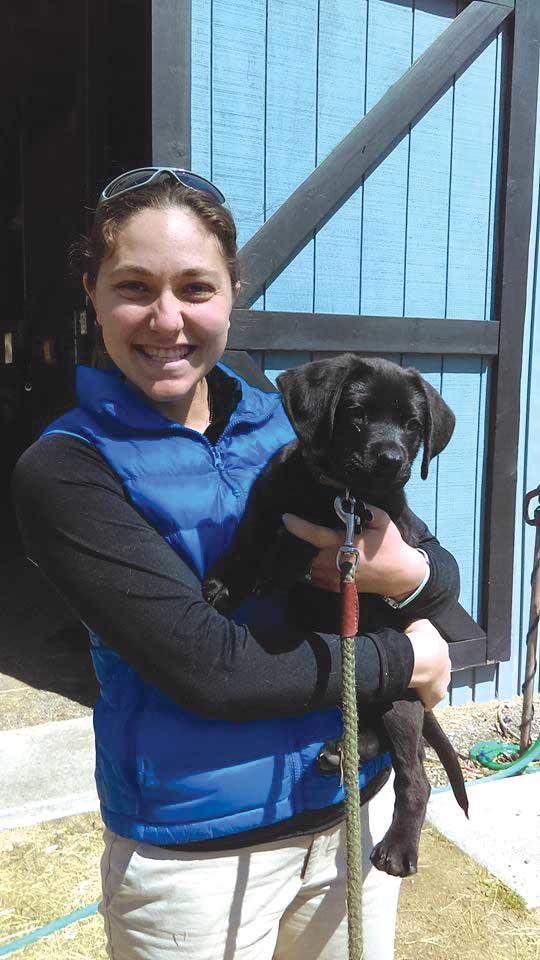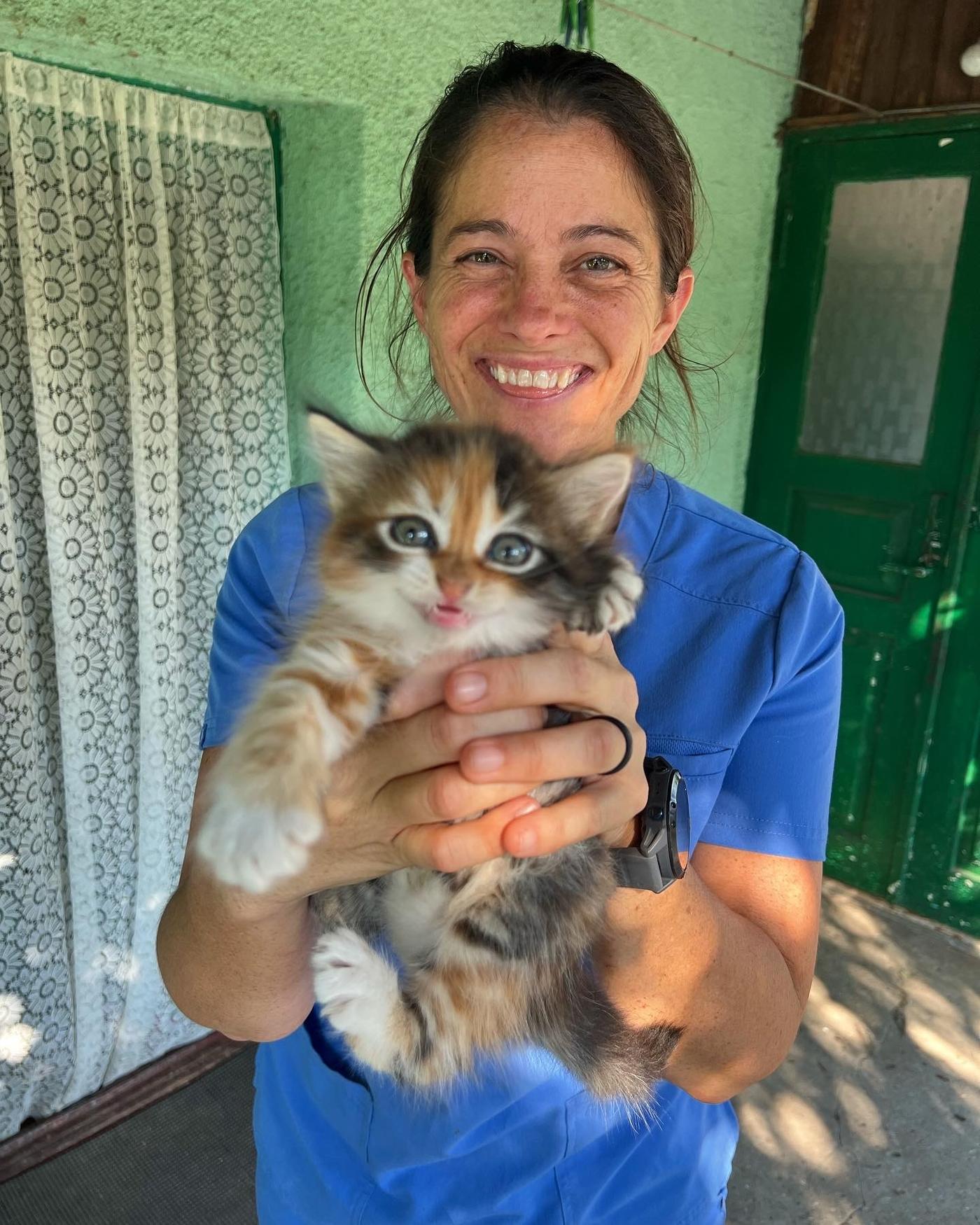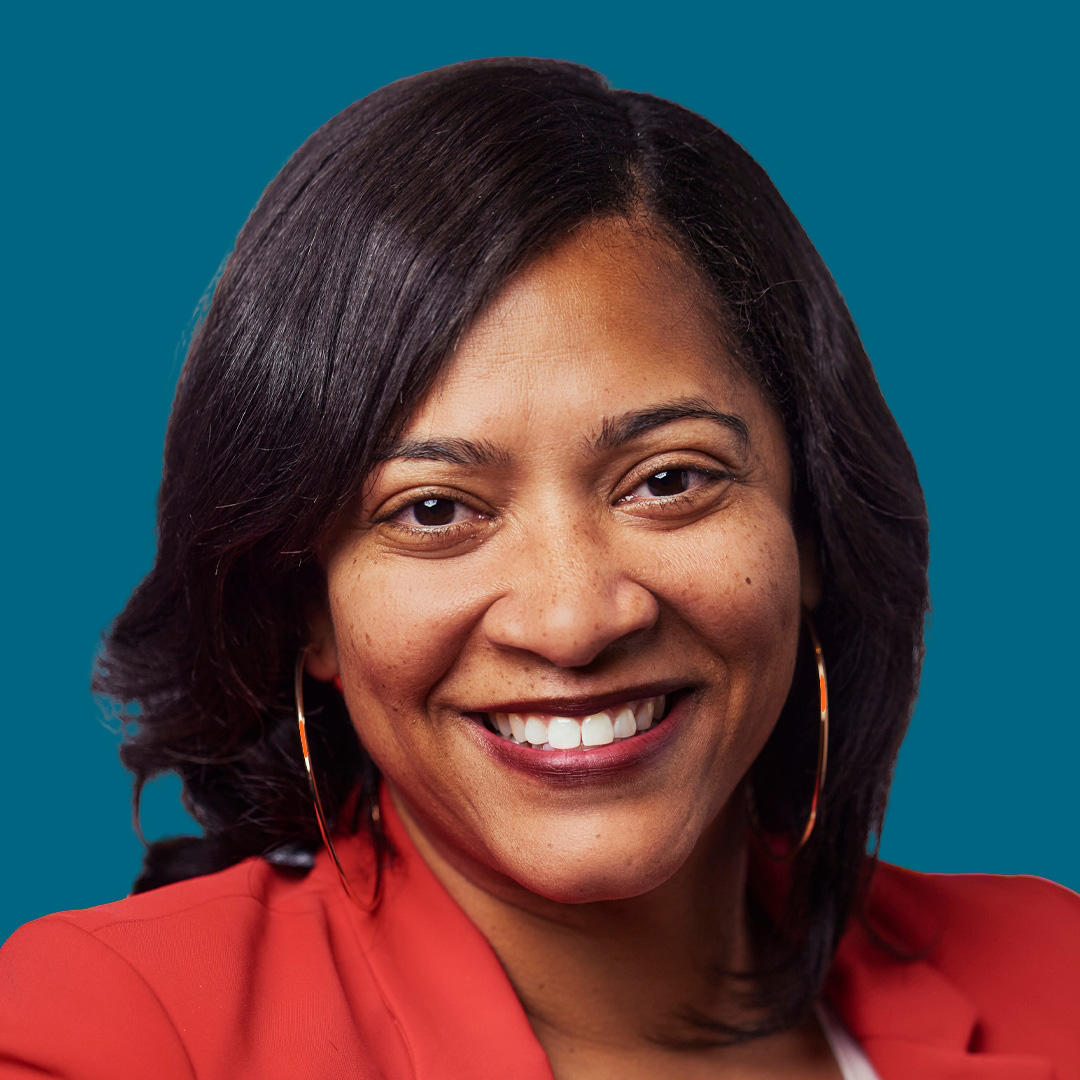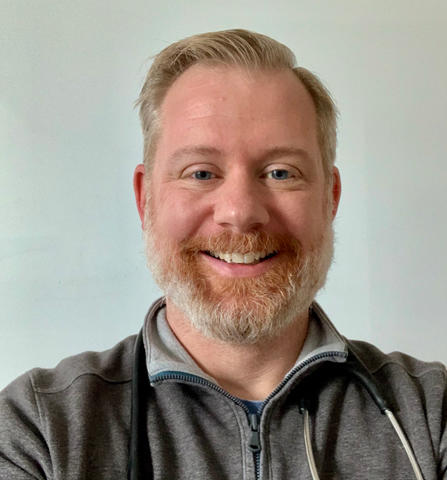Dr. Kimberly Guyer knew she wanted to become a veterinarian when she rode her first horse at six years old. “I just knew I wanted to care for them, as cliché as that sounds it was really true,” she said. Little did she know that love for horses would evolve into a passion for One Health and an opportunity to be the first Rossie to undertake the collaborative MPH degree program with Johns Hopkins Bloomberg School of Public Health.
The first-of-its-kind collaboration allows for research and education exchanges between the two schools, encouraging students to expand their knowledge of One Health and become leaders in the field.
“About 75 percent of the new diseases that have affected humans over the past 10 years have been caused by pathogens originating from an animal or from products of animal origin,” said Dr. Sean Callanan, dean at Ross University School of Veterinary Medicine (RUSVM). “Our relationship with the Bloomberg School provides another avenue for our students to develop their capacity to play a role in addressing 21st century health challenges.”
We sat down with Dr. Guyer to learn more about her passion for One Health and her hopes for the future.
WHERE DID YOU PRACTICE AFTER GRADUATING FROM RUSVM?
After graduating from RUSVM and a year-long rotating internship with the Large Animal Medicine Service at Tufts Cummings School of Veterinary Medicine and Massachusetts Equine Clinic, I worked for about four years in practice at a two doctor large animal ambulatory practice in New Jersey. We provided preventative care services, minor field surgeries, lameness exams and 24/7 emergency coverage.
WHY WERE YOU INTERESTED IN THE JOHNS HOPKINS PARTNERSHIP OPPORTUNITY?
I love problem solving, educating the public and the medical mystery. These all are at the very core concepts of veterinary medicine and public health. In large animal practice, I found I really enjoyed being vigilant to issues concerning zoonotic and reportable diseases, especially since many facilities under my care were open to the public. I also saw a need for veterinarians to have a larger impact in One Health and emergency response efforts. The Johns Hopkins Bloomberg School of Public Health’s program was brought to my attention by Dr. Christa Gallagher, who is a current assistant professor in public health and epidemiology at RUSVM. I had contacted her over a year ago about her path to being a professor in public health and epidemiology and she informed me of their program. It was an easy choice and Johns Hopkins has an incredible faculty, reputation and a huge scope of opportunities to get involved in public health projects. Not to mention their part time program is 80% online with short intensive courses in person offered three times a year, so it was an easy fit into my current work-life balance.
WHAT CAN YOU SHARE ABOUT YOUR EXPERIENCE IN THE PROGRAM?
Being a Rossie and not being shy of studying abroad, I had the opportunity to start the program in Barcelona, Spain last fall. It was incredibly humbling to meet and work with colleagues in my cohort from all different aspects of health care (physicians, nurses, biotech professionals, emergency medical technicians, military, researchers, medical directors and laboratory scientists) who were also from all over the world. I have never had an opportunity to network, collaborate, learn and create with non-veterinary professionals at this level. With all of the various backgrounds working together, we each had our own experience to bring to the table in class discussions and group work.
WHAT IS IT LIKE TO BE THE ONLY VETERINARIAN IN YOUR COHORT?
I answered a lot of “What would you do with an MPH for animals?” or “Animals and Public Health, what does that mean?” I was excited to share my story and how the combination of a DVM and MPH is used for state, military, international and government (CDC, FSIS, USDA) work. It was really fun for me to add my educational expertise when
it was needed for the group. Of course my group got the question correct in a mock public health quiz about Lyme Disease and how its reservoir host is the White Footed Mouse and not the White Tailed Deer! It was also a great learning experience for me to learn more about human health.
WHAT ARE YOUR GOALS AFTER GRADUATION?
My goal in the program is to focus on Epidemiology, Infectious Disease, Emergency Response, Food and Environmental Public Health and Organizational Management in the face of disease outbreak investigation and surveillance. I would like to take these skills into a state veterinary public health position or working for the CDC in infectious disease. Another possibility after graduation is applying to be an Officer in the Epidemic Intelligence Service (EIS). Eventually with my Masters and accumulating experience, I would like to become boarded in American College of Veterinary Preventive Medicine (ACVPM).
AS A VETERINARIAN, WHY WAS IT SO IMPORTANT FOR YOU TO PURSUE FURTHER EDUCATION IN PUBLIC HEALTH?
A Masters in Public Health opens doors for veterinarians to use their training, knowledge and skills for a larger audience. One Health is so important as we continue to learn that animal health, human health and environmental health are all interconnected. Influenza, emergency response, climate change and tick and mosquito borne diseases are all huge public health topics and all of them have animal related concerns. Now is the time to really start collaborating with our peers in other medical fields to spread the word of how we as veterinarians really are equipped to help to improve the public’s health.
Dr. Guyer expects to graduate from the Bloomberg School program in 2020. Best of luck, and we can’t wait to hear the great things you do.







